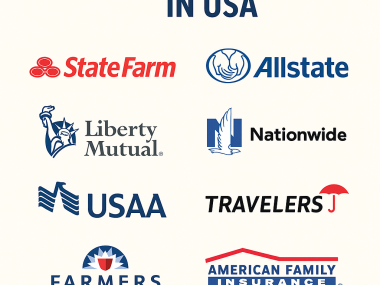Compare Home Insurance Quotes in 2025: The Ultimate Guide
Introduction
In 2025, Compare Home Insurance Quotes in 2025 is not just a smart financial move—it’s an essential step for anyone who owns or rents a home. The insurance landscape has changed dramatically in recent years due to inflation, rising construction costs, and the growing impact of climate change. Homeowners now face higher premiums, more exclusions, and greater complexity in choosing the right policy. Against this backdrop, comparing quotes has become the most effective way to balance affordability with comprehensive protection. Home & Property Insurance in 2025
Home insurance remains the primary safeguard for your most valuable asset—your property. It covers you against risks such as fire, theft, natural disasters, and liability claims. But in today’s market, coverage isn’t as straightforward as it once was. Policies vary widely in price, features, and exclusions. Without comparing quotes, many homeowners risk either overpaying for coverage or, worse, leaving their property underinsured. Top 5 building insurance companies in USA
At the same time, the rise of insurtech companies and online platforms has transformed the way people shop for insurance. Gone are the days of relying solely on a local agent. Now, with a few clicks, you can compare dozens of providers, explore customizable coverage, and secure discounts for things like smart-home technology or bundling policies.
Why Comparing Home Insurance Quotes Matters in 2025
The year 2025 brings new realities for homeowners. Inflation and global supply chain challenges continue to drive up rebuild costs, meaning policies need regular updates. Climate change has also shifted the risk landscape—wildfires, floods, and hurricanes are not only more frequent but also more severe, causing insurers to raise premiums in high-risk areas. Best Health Insurance for Self-Employed
This environment makes comparing quotes a critical tool for homeowners to:
-
Stay financially secure by finding competitive premiums.
-
Prevent underinsurance by ensuring coverage matches current rebuild values.
-
Access tailored protection with modular, customizable policies.
-
Leverage discounts offered for eco-friendly homes, smart security, or no-claims records.
In short, comparing home insurance quotes in 2025 is about more than saving money—it’s about making sure your policy adapts to the times and keeps pace with your unique needs. Compare Vehicle Insurance
What Is Home Insurance? (Definition & Overview)
Home insurance—also known as homeowners’ insurance—is a contract between you and an insurance provider that protects your property and belongings from financial loss due to risks such as fire, theft, storm damage, or liability claims. What is Cryptocurrency? The Digital Financial Revolution
Core Types of Coverage
-
Building Insurance: Covers the physical structure of the home—walls, roof, permanent fixtures, plumbing, and electrical systems.
-
Contents Insurance: Protects personal belongings inside the home—furniture, electronics, appliances, clothing, and valuables.
-
Combined Policy: Bundles both building and contents coverage into one plan.
-
Landlord Insurance: Designed for rental properties, covering building structure plus potential loss of rental income. Loans for Car Repairs in the UK with Bad Credit
-
Tenant Insurance (Renters’ Insurance): Provides contents and liability coverage for renters.
Optional Add-Ons in 2025
-
Flood insurance
-
Earthquake cover
-
Home emergency assistance (boiler, plumbing, electrical breakdowns)
-
Cyber protection for smart devices
-
Accidental damage cover. Best Crypto Exchanges
-
Valuable personal property extensions (jewelry, art, collectibles)
The increasing variety of add-ons highlights why comparing quotes is crucial—a policy that seems cheaper may exclude essential protections, leaving you vulnerable.
Why Compare Home Insurance Quotes in 2025?
1. Rising Premiums Demand Smarter Shopping
According to industry reports, global home insurance premiums in 2025 are up by 8–15% compared to 2023. Homeowners who automatically renew with their existing insurer risk overpaying. Best Renters Insurance for Students in Toronto
2. Protection Against Underinsurance
With property rebuild costs rising due to inflation, many homeowners are unknowingly underinsured. Comparing quotes allows you to reassess your coverage needs and adjust limits.
3. Exploiting Competitive Discounts
Many insurers offer discounts for:
-
Installing smart security systems
-
Bundling home and auto policies
-
Maintaining a claim-free history
-
Paying annually instead of monthly
4. Regional Differences in Risk
A homeowner in Florida will face hurricane risks, while someone in California must account for earthquakes. Comparing quotes ensures you find insurers that specialize in your regional risks. Critical Illness Insurance for Canadians with Pre-existing Conditions
5. Access to New Insurtech Providers
Insurtech companies like Lemonade, Hippo, and Root are using AI and big data to offer faster quotes and lower premiums. Comparing quotes ensures you don’t miss out on innovative players with competitive pricing.
Historical Perspective: How Comparing Quotes Evolved
-
Pre-2000s: Homeowners relied on local agents or brokers. Comparison was slow, manual, and often biased toward certain insurers.
-
2000–2010: Online comparison sites emerged, allowing homeowners to compare multiple quotes side-by-side. Sweden Visa Sponsorship IT Jobs
-
2010–2020: Insurtech companies introduced mobile-first platforms, chatbots, and AI-driven personalization.
-
2020–2025: The integration of IoT devices, AI underwriting, and blockchain revolutionized risk assessment. Quotes are now instant, dynamic, and based on real-time property data.
Challenges in Comparing Home Insurance Quotes
-
Complex Terminology: Jargon such as “excess,” “deductible,” or “rebuild value” can confuse buyers.
-
Hidden Exclusions: Some policies exclude flood or earthquake coverage, requiring add-ons. Nursing Jobs in Denmark for Foreigners 2026
-
Information Overload: With dozens of insurers, it’s easy to feel overwhelmed.
-
Regional Variations: Premiums can fluctuate significantly across states, provinces, or countries.
-
Data Privacy Concerns: Using comparison sites may expose personal data to third-party marketers.
Key Strategies for Comparing Home Insurance Quotes
-
Use Trusted Comparison Platforms – Examples include Policygenius, Insurify, GoCompare (UK), and Finder (Australia).
-
Focus on Coverage, Not Just Price – Always compare deductibles, exclusions, and limits. Best USA Universities with Scholarships
-
Bundle Policies for Savings – Many insurers offer up to 25% discounts when bundling home and auto insurance.
-
Install Smart Technology – Smoke detectors, smart locks, and leak sensors can reduce premiums by 5–15%.
-
Check Insurer Reputation – Claims processing speed is just as important as price.
Best Home Insurance Companies in 2025
Here are some top-rated providers homeowners should compare: USA Visa Sponsorship Jobs
-
State Farm: Largest insurer in the U.S., excellent for broad coverage.
-
Allstate: Great for customizable add-ons and strong digital tools.
-
Progressive: Ideal for bundling auto and home policies.
-
Liberty Mutual: Wide range of discounts available.
-
Lemonade: AI-driven, fast claims process, eco-conscious policies.
-
Nationwide: Strong for natural disaster coverage.
-
Aviva (UK & Canada): Trusted international brand with flexible options.
-
NRMA (Australia): Excellent for weather-related risks. Civil Engineering Jobs in Australia with Visa Sponsorship
Regional Differences in Comparing Quotes
United States
-
Average annual premium: $1,500–$2,200
-
States like Florida, Texas, and California have the highest costs due to hurricanes, wildfires, and earthquakes. Caregivers Job in Canada with Visa Sponsorship
United Kingdom
-
Average annual premium: £200–£350
-
Flood risk zones significantly increase premiums.
Canada
-
Average annual premium: CAD $1,000–$1,400
-
Water damage and extreme cold-related claims are the top drivers.
Australia
-
Average annual premium: AUD $1,400–$2,000
-
Bushfire and flooding zones face higher premiums. How To Make Money Online
Step-by-Step Guide: How to Compare Home Insurance Quotes
-
List Your Coverage Needs – Building, contents, or both?
-
Collect Property Information – Age, size, construction type, security features.
-
Get Multiple Quotes – Use at least three different comparison platforms.
-
Review Policy Details – Deductibles, exclusions, optional add-ons. Switzerland Visa Sponsorship Jobs
-
Check Reviews & Ratings – Claims process efficiency is crucial.
-
Look for Discounts – Bundles, loyalty rewards, smart home savings.
-
Make Your Choice – Balance affordability with comprehensive coverage.
Pros and Cons of Comparing Quotes
Pros
-
Save money
-
Access tailored coverage
-
Avoid underinsurance
-
Discover discounts Sweden Visa Sponsorship Electrician Jobs
Cons
-
Time-consuming without tools
-
Can be confusing for first-timers
-
Hidden exclusions may be missed
Real-World Case Study
In 2024, a homeowner in Houston compared quotes from five providers. Premiums ranged from $1,700 to $3,100 per year for similar coverage. By switching to a competitive insurer, they saved $1,200 annually while gaining additional flood protection.
The Future of Home Insurance (2025–2030)
-
AI-Driven Underwriting: Premiums calculated instantly using satellite data and IoT sensors.
-
Blockchain Claims: Faster, fraud-proof claims settlements. Truckdrivers Job in USA with Visa Sponsorship
-
Climate-Based Pricing: Premiums increasingly tied to real-time weather risk models.
-
Green Home Discounts: Energy-efficient homes may qualify for eco-policy savings.
FAQs on Comparing Home Insurance Quotes
1. What is the average cost of home insurance in 2025?
Between $1,500 and $2,200 annually in the U.S., depending on location and coverage.
2. Should I always switch providers if I find a cheaper quote?
Not necessarily—review coverage details and customer service before switching. Mortgages in Finland with a Small Down Payment
3. How often should I compare quotes?
At least once a year, or after major life changes (moving, renovations, installing smart tech).
4. Does my credit score affect my premium?
Yes, in many U.S. states, though some regions regulate or prohibit its use.
5. Are online quotes accurate?
They are estimates—final prices may change after full underwriting checks.
6. Is home insurance mandatory?
Not by law, but most mortgage lenders require it.
7. What add-ons should I consider in 2025?
Flood, earthquake, accidental damage, and cyber protection.
8. Can I bundle home insurance with other policies?
Yes—auto and life insurance bundles often save 15–25%.
9. What happens if I’m underinsured?
You may have to pay out-of-pocket costs to rebuild or replace items.
10. Are there eco-friendly home insurance options?
Yes, some insurers now offer discounts for solar panels, energy-efficient systems, and sustainable materials.
11. Which insurer is best for first-time buyers?
Lemonade and State Farm are popular due to affordability and digital tools.
12. Do premiums increase after a claim?
Yes—most insurers raise premiums following claims, though no-claims discounts may offset increases.
13. What’s the cheapest way to reduce premiums?
Increase deductibles, install security devices, and maintain a claims-free record. Mechanic Engineers in Australia with Visa Sponsorship
14. Does home insurance cover Airbnb rentals?
Not always—short-term rental coverage is often an add-on.
15. Can climate change affect premiums?
Absolutely. Homes in flood or wildfire zones face steep premium hikes.
Conclusion on Compare Home Insurance Quotes in 2025
In 2025, comparing home insurance quotes is more important than ever. With rising premiums, evolving risks, and personalized coverage options, homeowners must take an active role in securing affordable, comprehensive protection. Caregiver Jobs in Thailand for Foreigners
By using trusted comparison platforms, carefully reviewing coverage, and leveraging discounts, you can save significant money while ensuring your home and belongings are fully protected. Don’t settle for the first quote you receive—make comparison a routine part of your financial planning.
👉 Take the next step today: compare home insurance quotes, explore differe












